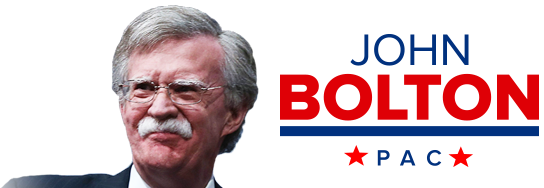President Biden’s dealings with Israel are increasingly incoherent.
His objectives are confused and contradictory; he ignores Iran, the region’s biggest menace; he failed to secure a pre-Ramadan cease-fire-for-hostages deal; and his efforts to increase humanitarian aid to Gaza are ill-conceived and ineffective, tragically likely to aid Hamas more than the innocent.
Biden should return to Square 1: Support Israel’s legitimate right to self-defense.
But his logic, such as it is, has more to do with domestic American politics than with the Middle East.
Ironically, therefore, he may be ensuring his own defeat this November.
Consider the administration’s efforts on humanitarian aid to Gaza civilians.
Biden had steadfastly refused to acknowledge that the central problem is not the volume of assistance available.
Instead, it is critical security concerns to (a) avoid “aid” shipments bringing in weapons, ammunition and supplies Hamas needs to continue its barbarism and (b) ensure that once legitimate supplies enter Gaza, Hamas does not hijack them for its own use.
These are not small issues.
Since the World War I origins of American international benevolence, our fundamental precepts have required aid go only to noncombatants and be delivered by neutral parties (or, at the very least, closely monitored) to avoid diversion.
Herbert Hoover’s Commission for Relief in Belgium established these conditions, which were intended to increase aid flows by giving donors confidence the aid was not misappropriated.
These are the correct humanitarian principles, but the conditions to implement them do not now exist in Gaza.
From Oct. 7 forward, there were reports of Hamas hoarding and diverting key supplies, and these incidents have only increased over time.
Biden appears not to care or understand that his approach is not more, but decidedly less, humanitarian because of its collateral effects of sustaining Hamas and prolonging the conflict.
His administration is resorting to virtue-signaling gimmicks and publicity stunts rather than focusing on pressing security issues.
Air-dropping assistance into Gaza, especially as Team Biden is implementing it, is a case in point.
By contrast, after the first Gulf War in 1991, President George H.W. Bush demonstrated the right way to air-drop supplies, rendering critical humanitarian assistance to Kurdish refugees fleeing Saddam Hussein’s vengeance.
On the ground, the Pentagon stationed drop-zone controllers to create order, ensuring the materials did not kill the intended beneficiaries when they landed, as recently happened in Gaza.
US logistical personnel, protected by security forces, also prevented the supplies from being seized on a “first-come, first-served” basis, which is also happening in Gaza.
Bush’s aid did reach its intended beneficiaries, unlike in Gaza, where we have no assurance Hamas terrorists did not expropriate the bulk of the air-dropped assistance.
Biden’s latest gambit of constructing a pier in Gaza to receive sea shipments is simply more showmanship.
The administration was quick to stress there would be no US “boots on the ground,” meaning, once again, no security forces to protect those constructing the temporary pier or those eventually off-loading supplies.
And building the pier might take as long as two months, which hardly addresses allegedly urgent needs.
Ship inspections in Cypress can partly reduce the risk of vessels transporting weapons to Hamas, but there is no guarantee those in real need will receive the aid and not Hamas.
Although unwilling to criticize its major donor, even the United Nations concedes land delivery of assistance is “more cost- and volume-effective.”
The worst part of Biden’s incoherence is its focus on the crisis’ symptoms rather than the crisis itself.
The problem is, first and foremost, Hamas.
It continues exploiting purportedly humanitarian concerns like Israeli hostages and Gaza civilians to advance its own politico-military objectives.
Only when Hamas can no longer leverage its barbaric capability to wage terrorist war, including by preventing the effective supply of humanitarian aid, will the problem disappear.
That has been Israel’s stated objective from the beginning.
Contrary to Biden’s recent comments, it is emphatically not a US “red line” for Israel to continue its efforts, in Rafah specifically, to finish the job.
Eliminating the terrorist threat is good geopolitical strategy, as well as good humanitarian logic.
And for Biden, it may be the only way to avoid further splitting the Democratic Party and becoming a one-term president.
John Bolton was national security adviser to President Donald Trump, 2018-19, and US ambassador to the United Nations, 2005-06.
This article was first published in New York Post on March 14, 2024. Click here to read the original article.


